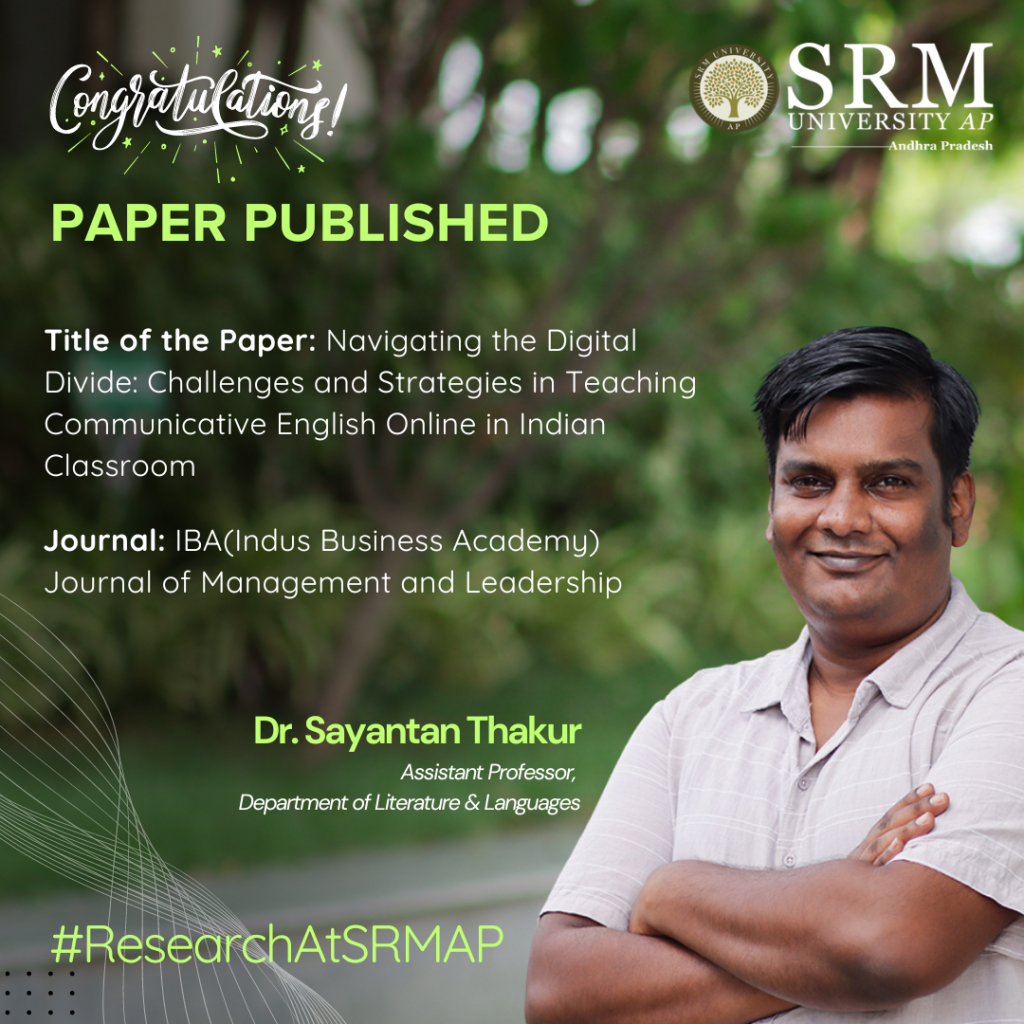
In the context of online English education in India, the “digital divide” has emerged as a significant obstacle, especially for students from rural or underprivileged areas. Dr Sayantan Thakur, Assistant Professor at the Department of Literature and Languages in his article introduces a research study titled “Navigating the Digital Divide: Challenges and Strategies in Teaching Communicative English Online in Indian Classrooms,” which aims to address the unequal access to online learning tools.
Abstract
The advent of online learning platforms is providing new opportunities for English language learning (ELL) in India. However, there is a significant challenge posed by the digital divide – the gap in accessing technology. This study investigates what causes the digital divide in internet ELL classrooms such as infrastructure limitations, device ownership and usage, and digital literacy skills; and how they affect student engagement, development of communication skills, and overall learning experiences. It suggests ways to bridge this gap which include government policies on infrastructure development; affordable tech solutions like mobile apps; teaching programs that enhance digital literacy among learners; support for teachers involved in web-based pedagogy. Through these recommendations, education stakeholders can create an inclusive cyberspace for all students where their communication abilities will be nurtured throughout different parts of India.
The Practical Implementation
The practical implementation of your research on “Navigating the Digital Divide: Challenges and Strategies in Teaching Communicative English Online in Indian Classrooms” has far-reaching social implications. By addressing the digital divide, your work can help level the playing field in education, especially for students from underprivileged backgrounds.
Improved Access to Education: Implementing strategies like infrastructure development, affordable mobile-based learning tools, and digital literacy programmes can provide more students, especially in rural and low-income areas, access to online English learning resources. This improves their chances of acquiring essential communication skills, opening doors to better job opportunities.
Empowering Teachers: Equipping teachers with digital tools and training enables them to deliver more effective online lessons, increasing student engagement and success rates.
Reducing Inequality: Bridging the technology gap can reduce educational disparities between urban and rural areas, promoting social mobility and reducing the long-term impacts of inequality.
Building a Digitally Literate Society: Enhancing digital literacy among students and teachers fosters a society better prepared for the demands of the modern workforce, ultimately contributing to economic growth and social inclusion.
Future Research Plans
- Regional Literature in Translation
- Tantric Tradition and Eastern Indian Literature
- Folk Music of Bengal
- Indian Philosophy, Aesthetics & Literature

